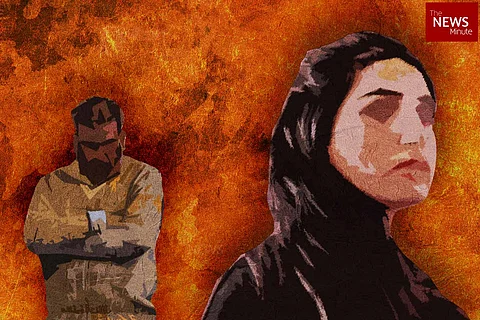

On Saturday, November 19, the Kerala High Court (HC) ruled that marriages involving minors under the Muslim Personal Law (Shariat) Application Act are not exempt from the Protection of Children from Sexual Offences (POCSO) Act. Justice Bechu Kurian Thomas was hearing the bail application of 31-year-old Khaledur Rahman, booked for sexual assault of his 15-year-old wife. In October this year, Justice Rajendra Badamikar of the Karnataka HC too had made similar observations on two occasions. He had stated that POCSO overrides personal law.
The POCSO Act, which came into force on children’s day (November 14) in 2012, was introduced with the aim of protecting children from any and all forms of sexual abuse. However, the law has occupied murky territory in cases where it overlaps with personal law. Muslim personal law allows for the marriage of girls who have attained puberty. Generally, 15 years is considered the age of puberty. However, POCSO determines the age of consenting to sexual activities as 18 years.
This leads us to another conflicting overlap — Muslim personal law and the Prohibition of Child Marriage Act. From a June 2012 Delhi HC judgement to an October 2022 Punjab and Haryana HC judgement, various courts have ruled that marriages of minor Muslim girls 15 years or above are not void. Justice Vikas Bahl of the Punjab and Haryana HC stated that “the marriage of a Muslim girl continues to be governed by the personal law of Muslims, . . . it has been observed that 15 years is the age of puberty of a Muslim female, and on her own willingness and consent, after attaining puberty can marry a person of her choice and such a marriage would not be void in terms of Section 12 of the Prohibition of Child Marriage Act, 2006.”
Both POCSO and Prohibition of Child Marriage Act are deemed special laws (those that apply in certain circumstances, here, for children) that override other laws. In the Kerala HC ruling on Saturday, Justice Bechu had said that irrespective of the marriage being valid or void, offences under the POCSO Act will apply. The judge said that he did not agree with the views taken by the Delhi, Karnataka, and Punjab and Haryana HCs in related matters.
The Delhi HC had, in August this year, said that a minor Muslim girl who has attained puberty is free to marry and live with her husband. The status report of the case had, LiveLaw reported, “revealed that the couple had sexual intercourse and the couple was expecting a child together.” The court had ruled that the case did not attract POCSO as it was not a matter of sexual exploitation but one where the consenting couple had married according to Muslim personal law and had physical relationships. “If the petitioner has wilfully consented to the marriage and is happy, the state is no one to enter the private space of the petitioner and separate the couple,” the court had said.
On October 10, two days before Karnataka HC Justice Badamikar ruled that POCSO overrides personal law, another judge in the same court had ordered the quashing of a POCSO case registered against a Muslim man for impregnating his minor wife. Karnataka police had registered a suo moto complaint upon being intimated by hospital authorities when the then 17-year-old pregnant girl had gone for medical check-up. Passing the order, Justice K Natarajan had stated, “The joint affidavit of both the parties shows that the parties have settled the issue in dispute. Considering the facts and circumstances of the case, continuing to allow criminal proceedings is abuse of process of law.”
However, in the case heard by the Kerala HC, the police had stated that the “accused had abducted the minor victim, who is a native of West Bengal, and committed repeated penetrative sexual assaults.” The issue came to light when the girl went to a Family Health Centre to get an injection for the pregnancy. The age of the victim at the time of marriage was found to be 14 years and 4 months. The prosecution also argued that the girl was enticed by the accused and abducted without her parent’s knowledge. Citing a clause from the Prohibition of Child Marriage Act, Justice Bechu stated that where a child is taken or enticed out of the keeping of the lawful guardian, such marriage shall be null and void. Piecing the two facts together, the judge concluded that in this case, “the existence of a valid marriage, even according to Muslim Personal Law, is debatable.” Even otherwise, it is questionable whether the said personal law will prevail over the special statute relating to marriages after the coming into force of the Prohibition of Child Marriage Act, 2006, the judge stated.
He upheld POCSO over personal law by adding that it is common knowledge that when the provisions of a statute are contrary to personal law and no specific exclusion of the said personal law from the statutory provisions has been stated, the personal law shall be invalid.